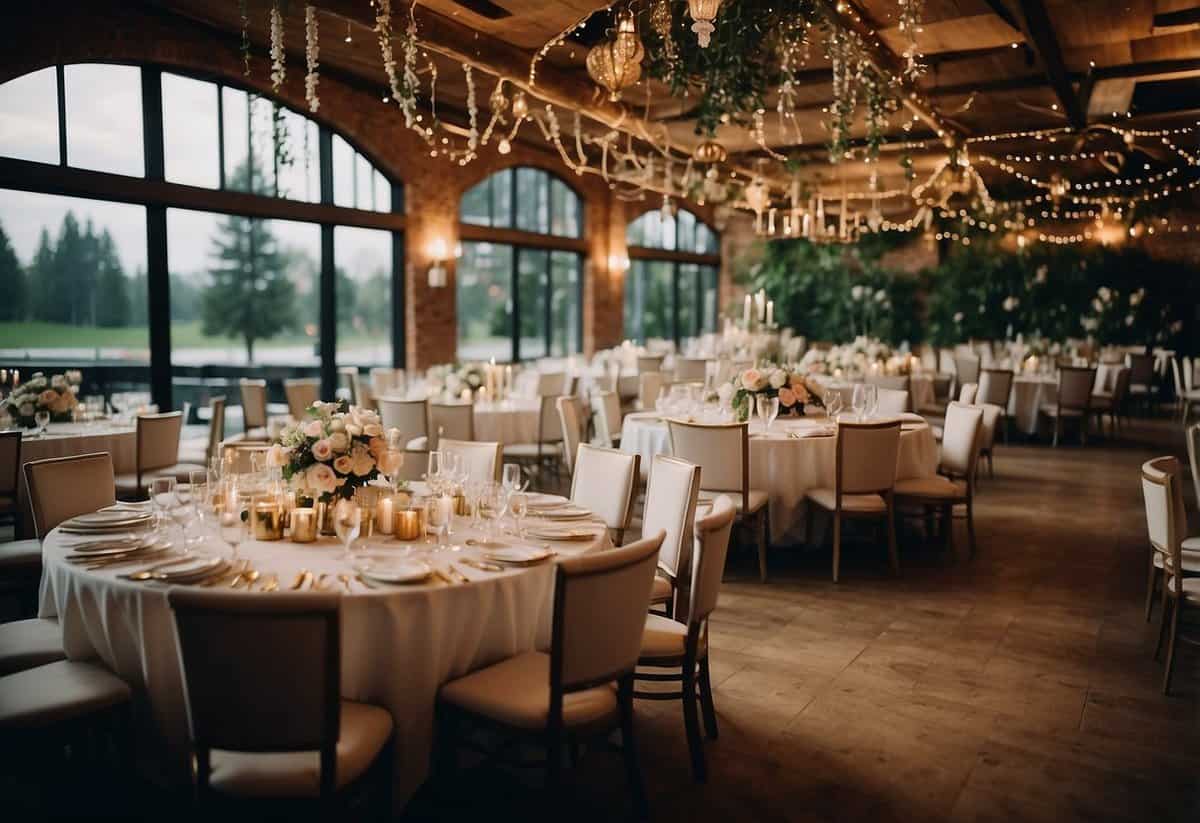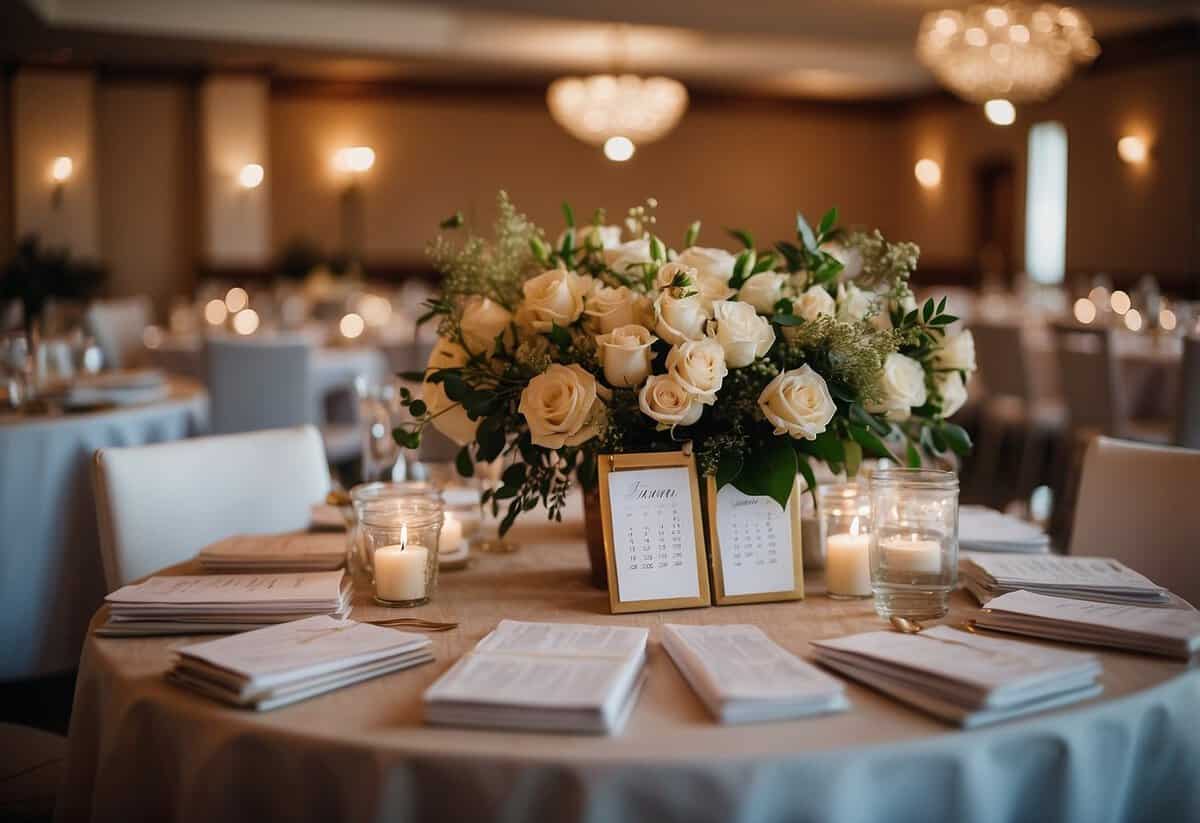Is It Bad to Not Have a Wedding Reception? Exploring Your Options
Choosing whether to have a wedding reception can feel like a big decision. There’s a lot of expectation around weddings, and you might wonder if skipping the reception is a bad idea. It’s not necessarily bad to forgo a wedding reception, but it does depend on your circumstances and the expectations of your guests.

Some people might feel it’s a bit rude to attend a wedding ceremony without any form of reception, as it’s often seen as a way to thank your guests for coming. Yet, having a small gathering or even a simple cake and punch reception can suffice, making your wedding more affordable.
Ultimately, your wedding day should reflect your preferences and what makes you happy. Whether you choose to have an elaborate celebration or just an intimate ceremony, what’s important is that your day feels right for you.
Exploring the Significance of Wedding Receptions

Wedding receptions can play a crucial role in celebrating your love and marriage. This section will look at why receptions are important and how different cultures and people view them.
Understanding the Purpose of Receptions
A wedding reception is the time when you and your partner can celebrate with family and friends immediately after the ceremony. It is traditionally the first event where newlyweds receive their guests. Receptions often include meals, drinks, dancing, and speeches.
This part of the wedding is a way for you to thank your guests for attending. The reception can also be tailored to reflect your personal style and the unique bond you share with your partner. Elements such as the first dance or the cutting of the cake are moments that create lasting memories.
Differing Views on Reception Importance
Not everyone feels the same way about wedding receptions. Some people believe a reception is essential because it provides an opportunity for loved ones to celebrate together. It is often seen as a critical part of weddings and offers guests a chance to relax and have fun.
On the other hand, some prefer simpler gatherings or even skipping the reception altogether. This might be due to budget constraints or a desire for an intimate setting. For these individuals, the focus might be more on the ceremony itself and less on partying afterwards. Different cultures and personal preferences can greatly influence these views.
Regardless of your choice, remember that what matters most is the love you share and the commitment you have made.
Reasons to Consider Skipping the Reception

Sometimes, couples may decide to skip the wedding reception for several practical and personal reasons. This can be influenced by personal preferences, financial concerns, and the potential impact on guests and the wedding party.
Personal Preferences and Valid Reasons
Some couples may choose to elope or have an intimate ceremony without a reception. You might not be interested in traditional celebrations or large gatherings. This preference is valid and can make your day feel more personal and meaningful.
There can also be cultural reasons for not having a reception. In some cultures, the ceremony is the main event. For others, geographical challenges like venue locations can make it hard. Medical issues or special circumstances might also prevent you from hosting a reception.
Financial Implications
Weddings can get expensive, and receptions are often a significant part of that cost. If you want to save money, skipping the reception is a practical option. You could use those funds for other priorities, like a honeymoon or saving for a home.
Elopement is another affordable alternative. This option can still be romantic and special without the hefty price tag. A small, intimate celebration with immediate family and close friends can reduce costs while keeping the essence of the celebration.
Impact on Guests and Wedding Party
Skipping the reception might affect your guests and wedding party differently. Some guests might appreciate the shorter event, while others could feel disappointed. It’s essential to communicate your plans clearly to manage expectations.
Your wedding party might also have mixed feelings. Some may be relieved by the simpler arrangements, while others might miss the opportunity to celebrate fully. Consider having a smaller gathering, like a dinner, to still honor your close friends and family.
Eloping skips the need for a large reception entirely, which can be less stressful for everyone involved. Your guests and wedding party might appreciate the simplicity, even if it means missing out on a traditional celebration.
Etiquette and Social Considerations

Deciding to skip a wedding reception can raise certain etiquette and social concerns. It’s important to handle potential feelings of rudeness and properly communicate your decision to your guests.
Addressing Concerns of Rudeness
Not having a wedding reception might seem rude to some guests. Traditionally, a reception is a way to thank your guests for attending. If you’re skipping it, consider other ways to show appreciation.
You can host a small gathering or a simple meal like a BBQ. This can make guests feel included without the need for a formal event. Be honest about your reasons. Most people will understand if it’s about budget or personal preference.
Another way to address concerns is through thoughtful gestures. Handwritten thank you notes are a great way to express gratitude and make your guests feel valued.
Communicating Decisions to Invited Guests
When communicating your decision to skip the reception, clarity is key. Make sure your wedding invitations are clear about the plan. State in the wedding invitation that there will be a ceremony but no reception.
Sending an RSVP card can help you manage expectations. Guests will appreciate knowing ahead of time so they can plan accordingly.
Consider a wedding website where you can detail the day’s schedule. This can include suggestions for nearby restaurants or activities for guests to enjoy after the ceremony.
Clear communication helps avoid misunderstandings and ensures everyone knows what to expect.
Alternatives to Traditional Receptions

There are many ways to celebrate your wedding beyond the typical reception. These ideas focus on making your day special and memorable.
Intimate Gatherings and Elopements
Small Dinners or BBQs: Instead of a large reception, consider a smaller event like a dinner with close friends and family. A BBQ in your garden can provide a relaxed and intimate atmosphere.
Tea Parties: You can have a tea party with your closest loved ones. This is perfect for a quiet and elegant celebration.
Elopements: When you elope, you can skip the reception and focus on the ceremony. This can make your day feel even more personal and less stressful.
Movie Nights: A movie under the stars with popcorn and cocktails offers a unique way to celebrate. Invite a few friends and relax with your favorite film after the ceremony.
Logistics and Planning Without a Reception

Planning a wedding without a reception involves specific considerations to ensure the event remains special and enjoyable for everyone. Key logistics include managing guests’ expectations and responsibilities, and carefully organizing the ceremony’s details and flow.
Managing Expectations and Responsibilities
When you decide not to have a reception, it is essential to inform guests well in advance. Clarify this choice on your invitations or wedding website. This approach helps avoid misunderstandings and allows guests to plan accordingly.
Discuss the decision with your parents as they might have specific expectations. A small gathering post-ceremony, like a lunch or dinner, can be a simple way to thank close family and friends.
Consider the roles guests will play. Without a reception, ensure there’re clear instructions for arriving, seating, and any post-ceremony plans. This will help everyone feel included and understand the flow of events.
Ceremony Details and Flow
Focus on making your ceremony memorable. Select a beautiful location, whether it’s a church, a garden, or another special place. A visually appealing setting enhances the experience for everyone present.
Plan the sequence of events meticulously. Include the processional, exchange of vows, and any additional elements like readings or musical performances. Each should flow smoothly into the next.
Pay attention to practical details. Arrange comfortable seating and clear signage directing guests. Preparing these elements in advance ensures the ceremony runs smoothly and keeps attendees comfortable and happy.
Remember to have a designated person or team to manage logistics on the day. This helps you focus on enjoying your special moment without worrying about minor details.



